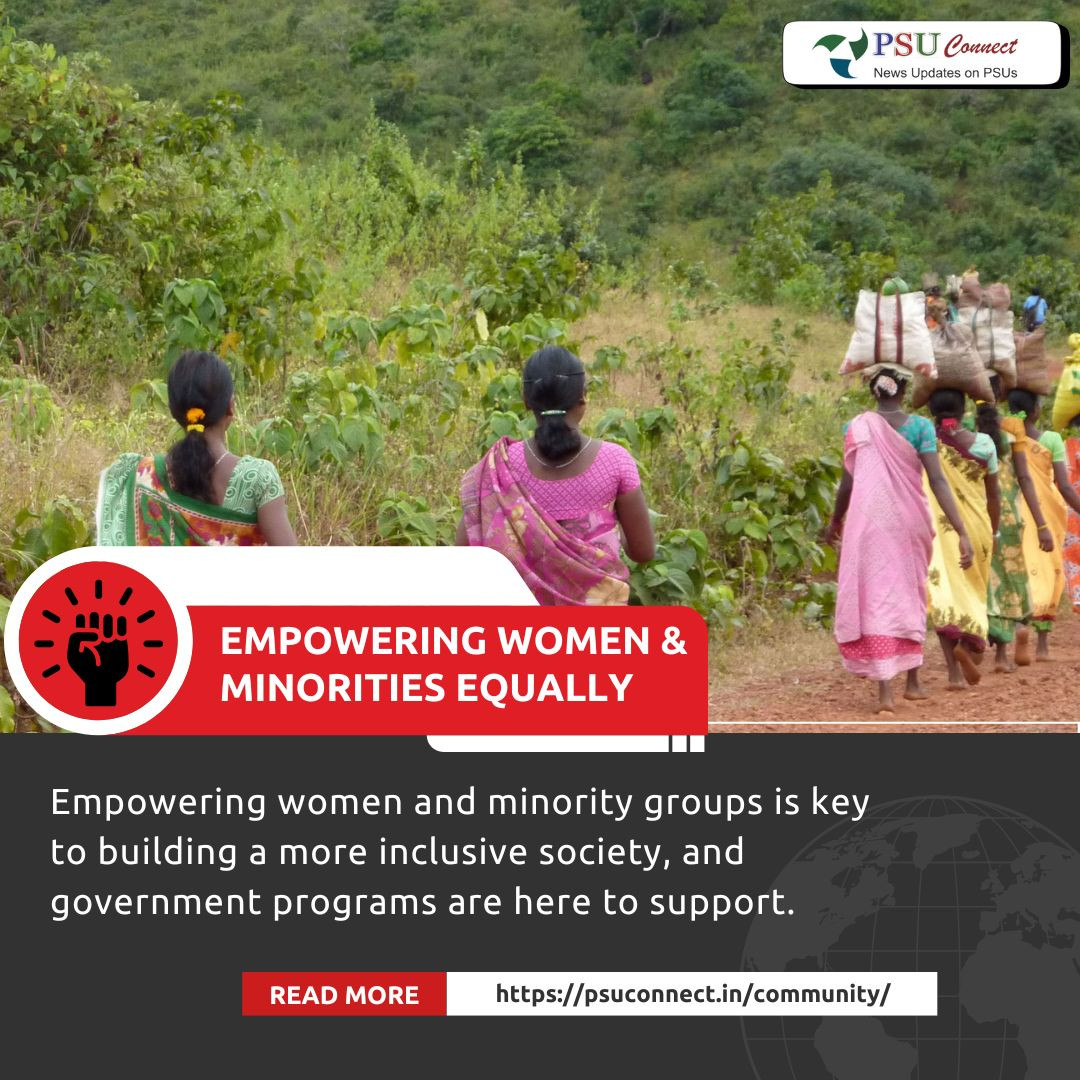Empowering Women & Minorities: A Step Towards Equality!
Empowerment of women and minorities is not just a step towards equality; it’s a foundation for a fair, progressive, and inclusive society. Throughout history, women and minority communities have faced systemic obstacles—political, social, and economic—that hinder their growth. But as awareness spreads and movements amplify these voices, societies are beginning to recognize that empowering these groups is essential for sustainable growth and overall well-being.
Understanding Empowerment and Its Impact
Empowerment means equipping individuals with the tools, resources, and opportunities they need to make decisions and take control of their lives. When women and minorities are empowered, they contribute more fully to their communities, economies, and nations. This empowerment goes beyond simply providing rights; it involves active steps toward removing inequalities in various sectors, including education, healthcare, employment, and representation in leadership.
Why Focus on Women?
Women make up nearly half the world’s population and play crucial roles in society, from family care to community development. Yet, in many societies, women are underrepresented in decision-making roles and often lack access to resources and opportunities equal to those of men. Empowering women is a powerful way to boost economic growth, reduce poverty, and improve the overall health and education standards of future generations. Studies show that economies perform better when women actively participate in the workforce.
Minorities: Overcoming Historical Barriers
Minority communities often face systemic discrimination that hinders their access to quality education, healthcare, and employment. Empowering these groups isn’t about favoring one community over another; it’s about correcting historical and societal imbalances. This approach builds harmony and cohesion by ensuring every community can thrive and contribute. When minorities are given fair representation, societies benefit from diverse perspectives that enrich cultures, foster innovation, and create more resilient economies.
Education: A Key to Empowerment
Education is fundamental to empowerment. By providing equal access to quality education, societies create opportunities for women and minorities to build skills and pursue their dreams. Education helps individuals understand their rights, develop self-confidence, and make informed decisions. Many community programs and NGOs focus on offering scholarships, vocational training, and mentorship to help bridge the educational gap for these groups.
Healthcare Accessibility and Its Role
Healthcare is another crucial area for empowerment. Access to adequate healthcare enables women and minorities to lead healthier, more productive lives. Initiatives that focus on maternal health, mental health, and preventive care are essential, especially for communities that face barriers in accessing quality healthcare. By prioritizing healthcare for these groups, we reduce disparities, improve life expectancy, and build a healthier society for everyone.
Economic Independence and Skill Development
Financial independence is one of the most powerful forms of empowerment. Programs that promote skill development, vocational training, and microfinancing have a profound impact on women and minority communities, especially in rural and underserved areas. Such programs create pathways for individuals to start their own businesses, pursue higher-paying jobs, and contribute to the economy. Financial empowerment brings dignity and self-worth, breaking cycles of poverty and dependency.
Political Representation: A Voice for All
Representation matters. When women and minorities have a voice in decision-making processes, policies are more inclusive and address the needs of all sections of society. Encouraging more women and minorities to participate in politics helps create policies that reflect diverse experiences and address inequalities. Some countries have already adopted quotas and reserved seats, ensuring that marginalized voices are heard and actively shaping their nation’s future.
Community Support and Allyship
Empowering women and minorities requires allyship and support from every part of society. Community groups, NGOs, and activists play an important role in advocating for the rights of these groups, spreading awareness, and building a supportive environment. When communities come together to uplift each other, they build trust and solidarity, fostering a sense of belonging and shared purpose.
Towards a More Equal Society
Empowering women and minorities is a collective responsibility. By taking active steps to remove barriers, create opportunities, and foster inclusive environments, societies move closer to true equality. This is not just beneficial for marginalized communities but enriches society as a whole, leading to stronger economies, healthier populations, and more peaceful, vibrant communities.
